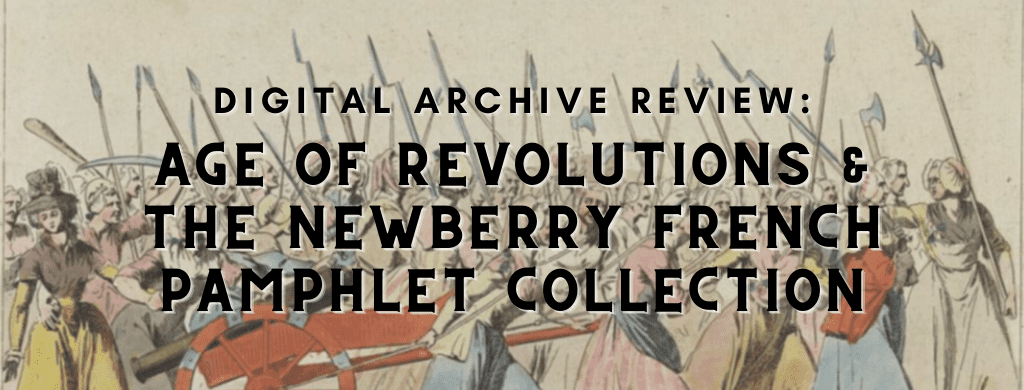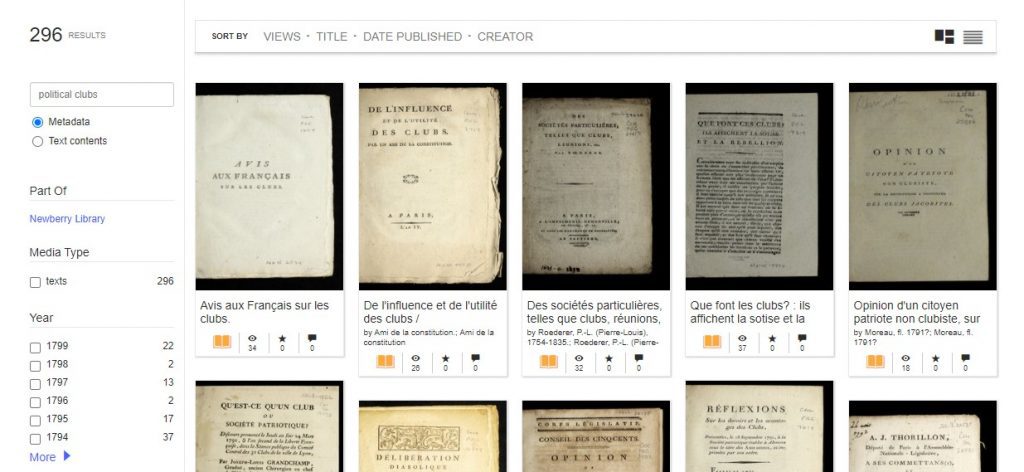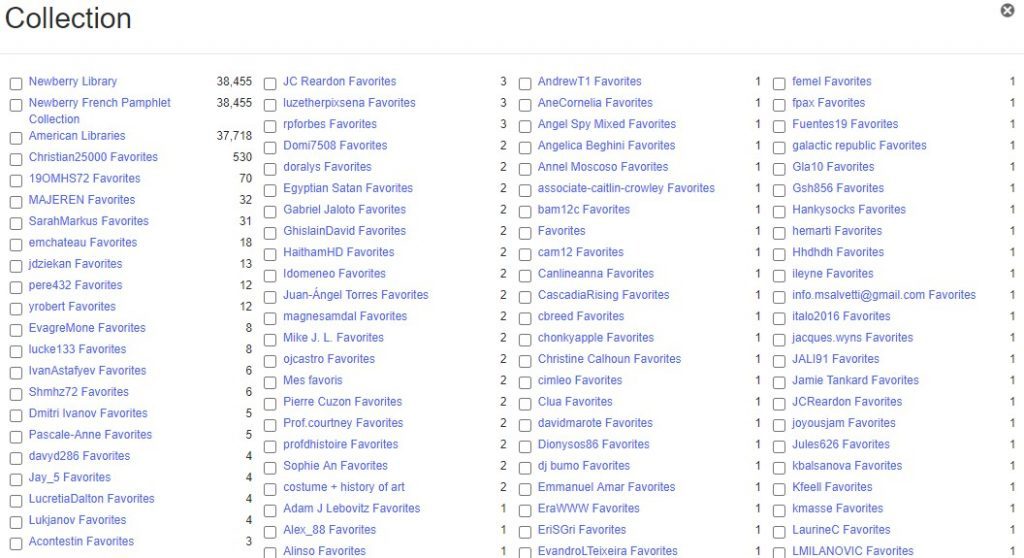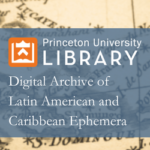These reviews discuss two different but connected digital resources: the Age of Revolutions and the Newberry French Pamphlet Collection. Both are important resources for the study of revolutions.
Review: Age of Revolutions
The Editors of the Age of Revolutions website describe it as “an Open-Access, Peer-Reviewed Academic Journal,” but the breadth of its features and thematic coverage extends beyond the realm of a traditional journal. Revolution is the central concept of the site, and its main contributions relate to the American Revolution, Atlantic revolutions, the French Revolution, the Haitian Revolution, and Latin American revolutions. The site publishes blog posts, analytical essays, book reviews, bibliographies, and links to other valuable online resources.
The fundamental objective of Age of Revolutions is the exploration of humanity’s experience and fascination with “revolutions.” Although it now operates with a nine-person editing team, it was co-founded by Dr. Bryan Banks of Columbus State University and Dr. Cindy Ermus of the University of Texas, San Antonio. It aims to “survey revolutionary changes in history, encourage the comparative study of revolutions, and explore the hopes imbued in the term.” These broad goals pull the site in many directions.
Users can search for blog posts and essays by upload date or via a thematic search. Age of Revolutions publications range from cultural history and material history, to class, agriculture, and religion. Each category functions as a tag, which once selected, displays other posts that fall under its purview. The site also provides the approximate reading time for each article. They range from 10 to 60 minutes, reflecting the varying length and level of intricacy of the articles.
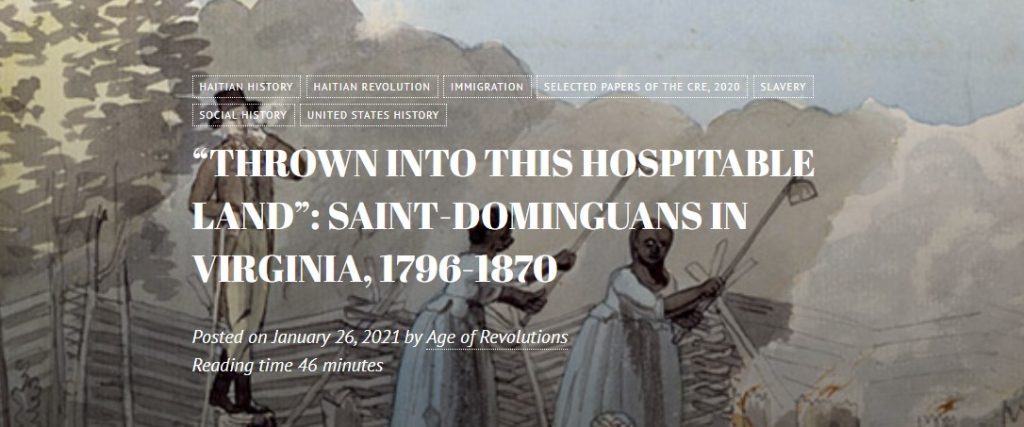
Although the site produces a great variety of essays, it also aims to host regular virtual “roundtables:” collections of posts based on a theme. Past roundtables have included “Bearing Arms in the Age of Revolutions” and ”Faith in Revolution.” As with the previously mentioned categories, the title of each roundtable operates as a searchable tag.
Two features are particularly valuable for students and teachers: the thematic bibliography section and the ‘Teaching Revolutions’ section. Site editors provide and frequently update reading lists for its five major sections: American, Atlantic, French, Haitian, and Latin American. Along with a steadily expanding group of contributors, they have also created a series of fifteen posts on teaching strategies for various aspects of historical revolutions. They include “Feel the Fear and Teach the Revolution Anway: Notes from a Historian of post-1945 France” and “Texas and the Great White-Washing of the American Revolution.”
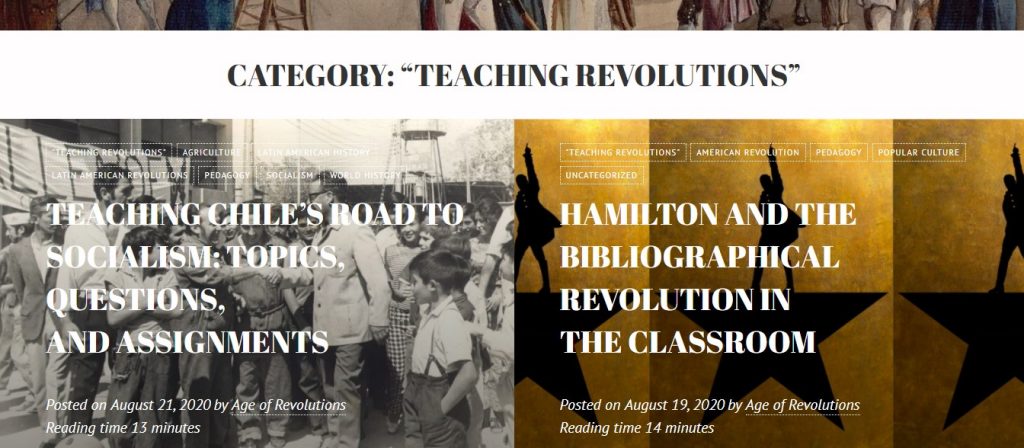
In their introductory remarks about the website, its creators ponder why the concept of revolution has remained so popular. They conclude that “the word ‘revolution’ is a human tool” for understanding change, and that over the course of history, “its meaning has shifted to accommodate those wielding it.” The extensive thematic and geographic reach of this site helps users zig and zag across historic and contemporary studies of the elusive concept.
Review: Newberry Library French Pamphlet Collection
The French Revolution has remained a pivotal point for studies of monarchy, despotism, democratic rule, and nation-state formation on a global scale. The Newberry Library in Chicago houses key sources related to this period, and its online repository is helping to increase the accessibility of these documents. Its extensive French Pamphlet Collection (FPC) contains 38,000 items.
Although the FPC has expanded its thematic contents over the years, the Newberry Library originally aimed to collect documents related to the revolution. Most of its contents originate from the period between 1780 and 1810 and represent “the opinions of all the factions that opposed and defended the monarchy.” Published online beginning in 2014, the number of visitors to the virtual FPC has steadily grown over time, with 60,000 page views in October 2020.
The site offers a streamlined user experience with multiple search options. Visitors can peruse documents via keyword search, or within any of the following categories: year, topics and subjects, creator, and publication language. Another option is filtering the search results based on views, that is the number of people who have clicked on that particular source in the past.
Once the user selects a specific document, the site navigates to a page designed for easy reading. Visitors to the site can read through page by page, with the option of zooming in and out on the images. They can also download the work for later viewing. Each work also displays a list of related items below the reader view.
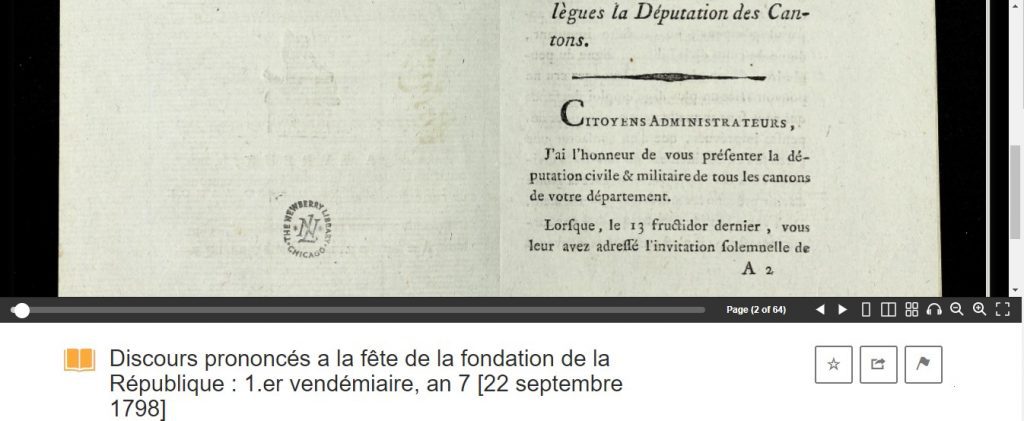
One interesting feature that the FPC site offers is the creation of sub-collections. By selecting and saving a group of documents, any user can create and name that collection. The groupings created by private users can contain hundreds of items, or a small amount, based on the user’s preference. This allows individual scholars to save works relevant to their own research, or it could provide the opportunity for teachers to prepare a selection of documents for a course or project.
The overall ease of access of the online French Pamphlet Collection of the Newberry Library makes it a rich resource. Its thousands of documents provide users the opportunity to explore a critical period of French history and its global implications in high resolution.
